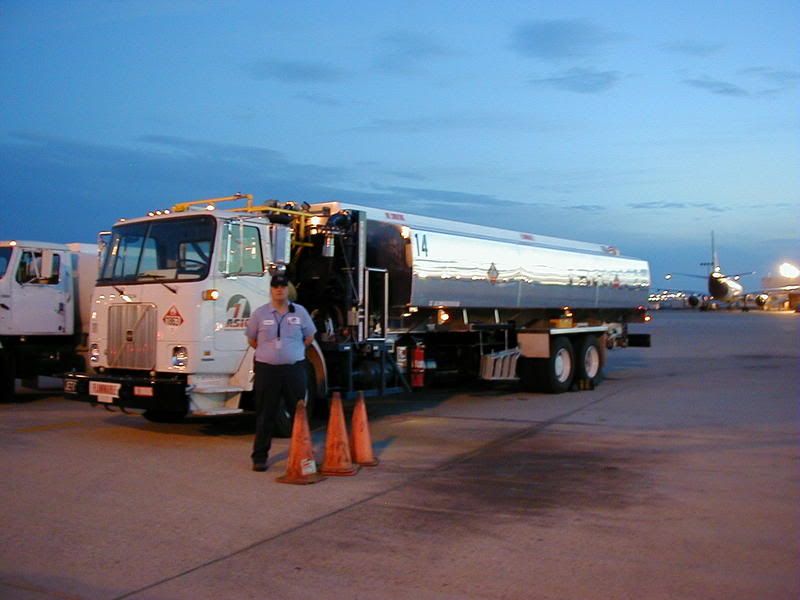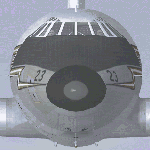Diversion airfield
Moderators: Guru's, The Ministry
Diversion airfield
Something I've never been sure of and hopefully some-one out there has the answer
When planning a flight, and before take-off, what factors must be taken into account, and how do I decide on which airfield to choose as the diversionary airfield should things go belly up with the weather etc on route ?
When planning a flight, and before take-off, what factors must be taken into account, and how do I decide on which airfield to choose as the diversionary airfield should things go belly up with the weather etc on route ?
It's better to break ground and fly into the wind, than to break wind and fly into the ground
RAF & Allied Air forces WWII Monument

RAF & Allied Air forces WWII Monument

- Chris Trott
- Vintage Pair

- Posts: 2591
- Joined: 26 Jun 2004, 05:16
- Location: Houston, Texas, USA
- Contact:
Re: Diversion airfield
I'm not well versed in ICAO alternates, but FAA alternates say that if the weather from 1 hour before to 1 hour after you planned arrival time may be below minimums for the intended destination, you must plan an alternate which is sufficiently distant from your destination to have the weather there forecast to be above minimums for the same period. Additionally, any flight with revenue passengers is to have a planned alternate of the same criteria planned on all flights. A departure alternate must be planned if the weather at the departure airport is forecast to be at or below landing minima from 1 hour before to 1 hour after your planned departure in case of problem that requires immediate diversion. The required IFR fuel reserves (45 minutes at normal cruise) may be taken into account when planning fuel for your alternate airport (i.e. you don't have to have fuel for your alternate separate of your required reserve if your alternate is less than 45 minutes from your destination).
One thing to consider though, that most people don't, is that your fuel needs to be sufficient to fly not only to your destination or alternate, but also to make 1 missed approach at each.
Finally, the "suitable airport" part of your alternate just means that you have to be able to safely land at the airport, doesn't say anything about being able to fly back out again in the same configuration, but it's a good idea to pick an airport that you can just get some fuel from and fly out of when the weather improves. Breaking down a plane for road transport isn't cheap.
One thing to consider though, that most people don't, is that your fuel needs to be sufficient to fly not only to your destination or alternate, but also to make 1 missed approach at each.
Finally, the "suitable airport" part of your alternate just means that you have to be able to safely land at the airport, doesn't say anything about being able to fly back out again in the same configuration, but it's a good idea to pick an airport that you can just get some fuel from and fly out of when the weather improves. Breaking down a plane for road transport isn't cheap.
Re: Diversion airfield
Selection of alternates eh?
It makes sense to use one with facilities at least as good as your planned destination.
Planning requirements are:
For alternate airfields with CAT II and CAT III approaches, use CAT I minima for planning purposes. For CAT I approaches use non-precision minima, for non-precision approaches use non-precision plus 200ft/1000m minima.
i.e if you were flying to Manchester and your alternate was Birminngham, before departure, the weather for BHX must be above the planning minima. If it was 500m then Birmingham could not be planned as an alternate as it is below CAT I minima. You would then plan maybe Heathrow. However, once you get there, you can divert to BHX (if you have a CAT II/III aeroplane) as it is available for CAT II/III approaches but you MUST carry fuel for your PLANNED alternate, LHR.
It makes sense to use one with facilities at least as good as your planned destination.
Planning requirements are:
For alternate airfields with CAT II and CAT III approaches, use CAT I minima for planning purposes. For CAT I approaches use non-precision minima, for non-precision approaches use non-precision plus 200ft/1000m minima.
i.e if you were flying to Manchester and your alternate was Birminngham, before departure, the weather for BHX must be above the planning minima. If it was 500m then Birmingham could not be planned as an alternate as it is below CAT I minima. You would then plan maybe Heathrow. However, once you get there, you can divert to BHX (if you have a CAT II/III aeroplane) as it is available for CAT II/III approaches but you MUST carry fuel for your PLANNED alternate, LHR.

"Speed building both sides.....passing one hundred knots.....V1..rotate...oh sh*t..."
- Chris Trott
- Vintage Pair

- Posts: 2591
- Joined: 26 Jun 2004, 05:16
- Location: Houston, Texas, USA
- Contact:
Re: Diversion airfield
Thankfully, the US and Jeppesen publish "Alternate Minimums" for all airports, so if you have access to Jeppessen charts, There is a page for each airport that gives the Alternate Planning Minimums so that you don't have to figure out which is appropriate for your airport. 
I don't fly in the UK much online anymore, but when I did, I thought the online chart site had a similar page available with alternate minimums for UK aerodromes.
I don't fly in the UK much online anymore, but when I did, I thought the online chart site had a similar page available with alternate minimums for UK aerodromes.
Re: Diversion airfield
bl***y hell, you guys have written a manual between you 
Seriously thoough, thanks a lot, I'm sure it will make sense once I read through it a couple of times, and it proves there's alweays someone out there with the answers and the willingness to help. Much appreciated.
Seriously thoough, thanks a lot, I'm sure it will make sense once I read through it a couple of times, and it proves there's alweays someone out there with the answers and the willingness to help. Much appreciated.
It's better to break ground and fly into the wind, than to break wind and fly into the ground
RAF & Allied Air forces WWII Monument

RAF & Allied Air forces WWII Monument

- Chris Trott
- Vintage Pair

- Posts: 2591
- Joined: 26 Jun 2004, 05:16
- Location: Houston, Texas, USA
- Contact:
Re: Diversion airfield
I'll try to give you the cliff notes -
1) An alternate airport must have weather better than the minimums of its least precise approach (or otherwise stated planned alternate minimum requirements) for a period 1 hour before to 1 hour after your intended arrival at your original destination plus flight time to that airport.
2) An alternate airport must be suitable for your aircraft (i.e. length and width of runway, available ramp facilities, etc)
3) You must ensure that you have enough fuel to make your airport and one missed approach, then fly to your alternate and make one missed approach. You can use your 45 minute (or more) reserve to factor into your fuel required to reach your alternate.
Did I miss anything Nigel?
1) An alternate airport must have weather better than the minimums of its least precise approach (or otherwise stated planned alternate minimum requirements) for a period 1 hour before to 1 hour after your intended arrival at your original destination plus flight time to that airport.
2) An alternate airport must be suitable for your aircraft (i.e. length and width of runway, available ramp facilities, etc)
3) You must ensure that you have enough fuel to make your airport and one missed approach, then fly to your alternate and make one missed approach. You can use your 45 minute (or more) reserve to factor into your fuel required to reach your alternate.
Did I miss anything Nigel?
Re: Diversion airfield
That just about sums it up. Practically, your destination is out you would either stay on the ground and await improvement or re-file to a commercial alternate when passengers could be bussed back and forth to the original destination. If its marginal you might consider tanking some extra fuel to give you some extra holding time at the destination in case of a break in the weather.
You can only make two approaches to your destination, if you fail to get in off either then divert. History shows a great number of CFIT(Controlled Flight Into Terrain) accidents to aircraft attemting a third approach in bad weather.
You can only make two approaches to your destination, if you fail to get in off either then divert. History shows a great number of CFIT(Controlled Flight Into Terrain) accidents to aircraft attemting a third approach in bad weather.

"Speed building both sides.....passing one hundred knots.....V1..rotate...oh sh*t..."
- DaveB
- The Ministry
- Posts: 30457
- Joined: 17 Jun 2004, 20:46
- Location: Pelsall, West Mids, UK
- Contact:
Re: Diversion airfield
Indeed.. Vanguard G-APEE immediately springs to mind 
ATB
DaveB
ATB
DaveB


Old sailors never die.. they just smell that way!
- Garry Russell
- The Ministry
- Posts: 27180
- Joined: 29 Jan 2005, 00:53
- Location: On the other side of the wall
Re: Diversion airfield
That's exactly what I was thinking Dave 
Garry

"In the world of virtual reality things are not always what they seem."

"In the world of virtual reality things are not always what they seem."
Re: Diversion airfield
Morning Dave. Agreed.
For those interested...
http://aviation-safety.net/database/rec ... -0&lang=en
N
For those interested...
http://aviation-safety.net/database/rec ... -0&lang=en
N

"Speed building both sides.....passing one hundred knots.....V1..rotate...oh sh*t..."




